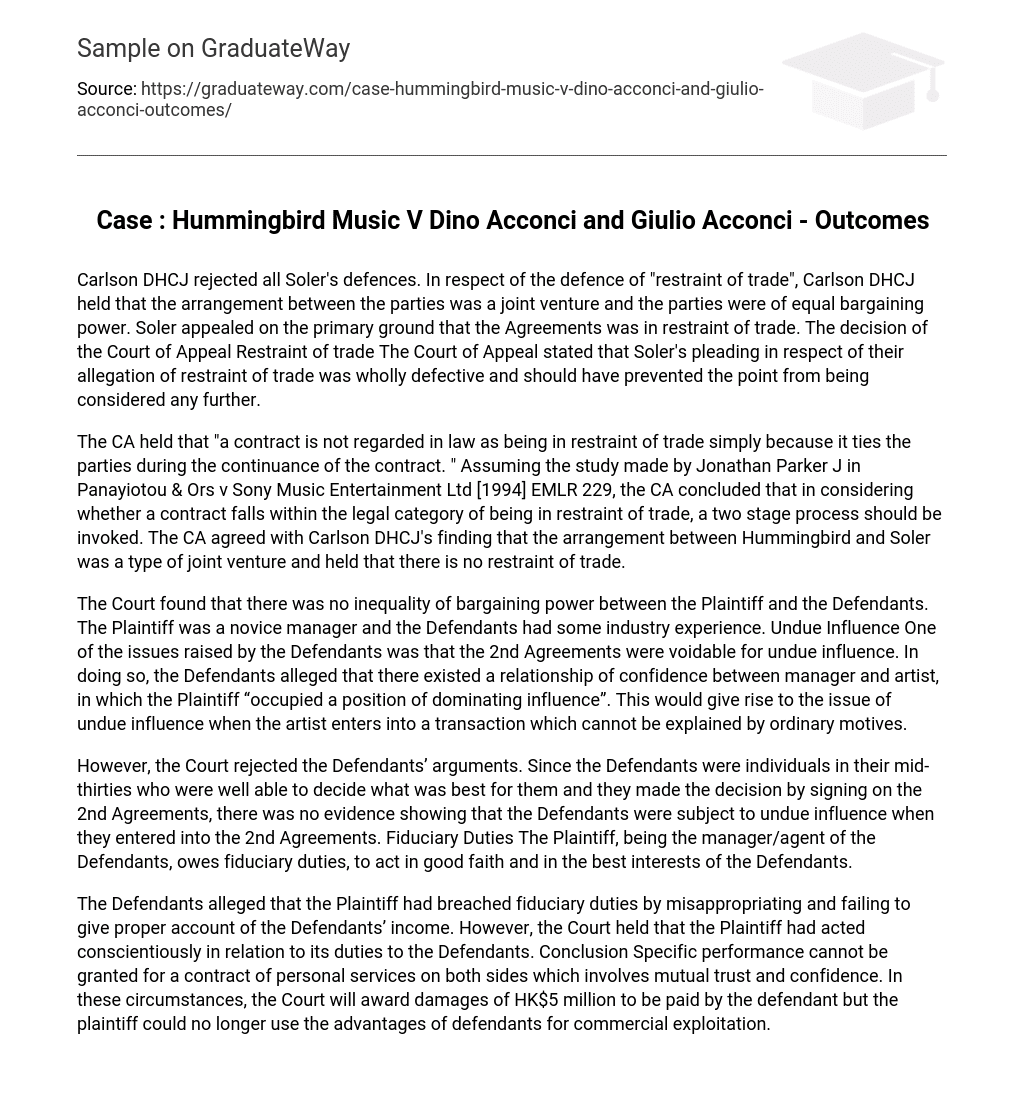Carlson DHCJ disregarded all of Soler’s defenses. In relation to the defense of “restraint of trade,” Carlson DHCJ concluded that the agreement between the parties constituted a joint venture and that both parties had equal bargaining power. Soler filed an appeal primarily on the grounds that the Agreements imposed restrictions on trade. The Court of Appeal’s ruling on the matter of restraint of trade stated that Soler’s argument in this regard was completely flawed and should have been dismissed from further consideration.
According to the CA, a contract cannot be considered a restraint of trade simply because it keeps the parties bound throughout its duration. Referring to Jonathan Parker J’s study in Panayiotou & Ors v Sony Music Entertainment Ltd [1994] EMLR 229, the CA determined that a two-stage process should be used to determine whether a contract falls under the legal category of a restraint of trade. The CA agreed with Carlson DHCJ’s verdict that the agreement between Hummingbird and Soler was a form of joint venture, and therefore concluded that there was no restraint of trade.
The Court determined that there was no unequal bargaining power between the Plaintiff and the Defendants, as the Plaintiff was an inexperienced manager while the Defendants had some industry experience. One of the arguments made by the Defendants was that the 2nd Agreements could be invalidated due to undue influence. They claimed that there was a relationship of trust and dependence between the manager and artist, with the Plaintiff having a dominant influence over the artist. This raised concerns about undue influence when the artist enters into transactions that cannot be explained by normal motives.
The Court rejected the Defendants’ claims and determined that there was no indication of improper persuasion when the Defendants, who were independent adults in their thirties with decision-making capabilities, signed the 2nd Agreements. As the manager/agent of the Defendants, the Plaintiff is obligated to fulfill fiduciary responsibilities by acting honestly and prioritizing the Defendants’ welfare.
The Defendants alleged that the Plaintiff breached their fiduciary duties by unlawfully taking and failing to accurately report the income that belongs to the Defendants. However, the Court concluded that the Plaintiff fulfilled its obligations to the Defendants with care. Consequently, enforcing specific performance for a contract involving personal services and mutual trust and confidence is not feasible. Hence, the Court mandated the Defendant to compensate HK$5 million in damages while forbidding any future exploitation of the Defendants’ advantages for commercial purposes by the Plaintiff.





